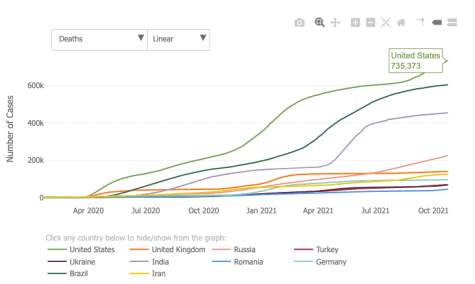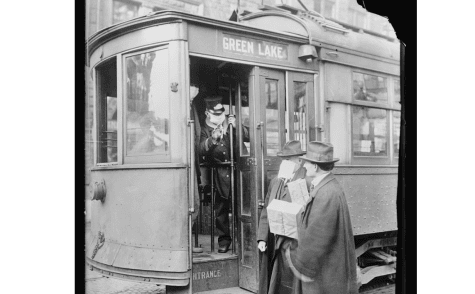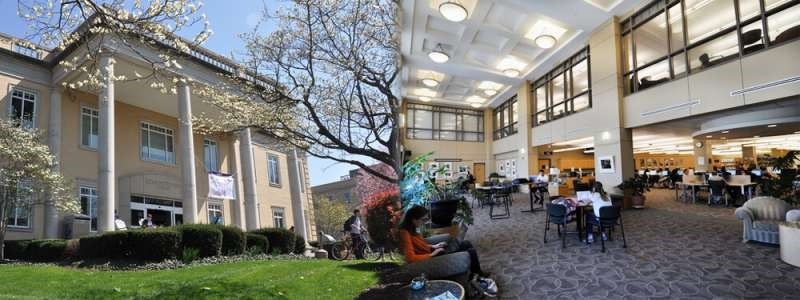Just before students returned to campus this fall, Shepherd reaffirmed its commitment to campus safety by updating its COVID-19 requirements for the Fall semester.
The new guidelines have been clear: “All individuals, regardless of their vaccination status, [must] wear a mask while in any university building. All masks must be worn properly — fully covering your nose and mouth — even if you are wearing a face shield.”
Yet, clarity and hope do not always ensure success.
Dr. Amy DeWitt, Interim Co-Dean of the Scarborough Library and Center for Teaching and Learning, has noticed an emerging lack of compliance in the library.
She understands why students come to the library. It is a quiet place where studying with peers can be its most engaging. Problems surface, though, when individual students and community members disregard Shepherd’s safety guidelines.
“The majority of those who enter the library are respectful and comply with the mask mandate,” she said. “When patrons are confronted for not wearing their masks properly, they have usually been quick to correct and cover their mouth and nose, but it is unfortunate when dedicated staff in the library receive pushback.”
Dr. DeWitt said that some students argue that they should be allowed to remove masks when in closed study rooms. However, unlike faculty or staff offices, many people use those rooms throughout the day.
“The library should be a comfortable, safe space for all patrons, and an individual student who chooses not to wear a mask is selfishly impacting the well-being of others,” she said.
Rhonda Donaldson, coordinator of Research Services and the liaison for the College of Nursing, Education, and Health Sciences and the College of Business, voiced her concerns.
“You don’t want to be the mask police, but you also don’t want to have a super spreader event in the library either,” she said. “Many students take their mask below their nose thinking that they are being compliant.”
Director of Academic Support Emily Gross, said, “We get it – we are all tired of COVID. But it isn’t over. We don’t know the living situations of others, whether they have someone vulnerable to illness living at home.”
Ms. Gross echoed the feelings of her Scarborough Library colleagues: for her, wearing a mask is a small way to care for colleagues, students, and their families.
The fault does not lay solely on students, nor the Shepherdstown community, though.
Certain members of the Shepherd University Foundation have been seen in the Scarborough Library without masks.
Private contractors can be seen without masks in Shepherd buildings, alone and with other workers.
Audrey C., a communications major, said some professors have used their positive vaccination status as a reason to remove their masks while teaching or giving presentations.
This community misunderstanding – or lack of care – comes as Covid-19 deaths in the United States surpass the total who died in the country during the 1918 flu pandemic, one of the deadliest. Where that nightmare saw 675,000 Americans die, Covid-19 has killed over 738,000 people at the time of writing.

To put this into perspective, that is over half the population of Hawaii.
It’s 159,000 more people than the population of Wyoming.
It’s more US military and civilian deaths than from World Wars I and II, the Korean war, the Vietnam war, the Gulf war, the war in Afghanistan, and the Iraq war combined.
And U.S. life expectancy dropped 1.5 years in 2020 – the largest drop in 75 years.
With figures so large, so profound, there must be some deeper, psychological component to explain the lack of compliance – and not just in the Scarborough Library.
“Actually, it’s quite ordinary,” said Dr. Lindsey Levitan, Associate Professor of Psychology.
Dr. Levitan received her Ph.D. in psychology from the University of Chicago, and her research background in attitudes and persuasion focuses on political and social influence.
The research shows that when we are around enough people who think alike, it is much easier to engage ideas we already find appealing and distance ourselves from the ideas we don’t like, Levitan said.
We become especially attracted to ideas that come from trusted expert figures and trusted environments. So, when we hear from televised punditry that safety guidelines like mask mandates are bad or useless, we will agree or disagree depending on what we have be taught to believe and who we have been taught to trust.
Further, there may be elements of motivated reasoning, where we used emotionally biased thinking to reinforce decisions or beliefs. When people disregard safety suggestions, they may justify a belief based on inaccurate information from faulted sources they sought on purpose.
This isn’t a new phenomenon either.

During the 1918 flu pandemic, it was difficult to get citizens to comply with mask regulations, let alone understand the reasons for wearing them.
People were so disaffected by mask requirements in San Francisco that a group of the mayor’s political opponents formed the “Anti-Mask League” citing government overreach, obstructions of justice and liberty, and a lack of scientific evidence that masks were useful.
For Shepherd students, though, there could be a simpler reason for not wearing masks.
“It could just be that they are hanging out with their friends,” Dr. Levitan said.
Our attitudes can become relaxed when we are around those with whom we are most comfortable and feel the safest.
For whatever reason a person chooses not to wear a mask properly, the consequences for the Shepherd campus community remain.
Dr. DeWitt reiterated Shepherd’s firm policies should anyone – student, faculty, staff, or community – choose to flout the rules.
“Names of offenders are taken, and they are reported to the Coordinator for Student Conduct, Jacob Mellow,” she said.
The Fall 2021 COVID-19 Update states, “The coordinator will follow policy for non-compliance. Staff or faculty who are in non-compliance will be addressed by their immediate supervisor, which could lead to disciplinary action up to and including termination of employment.”
For students, continued violations could lead to expulsion.
To learn more about where you need to wear a mask, visit the Shepherd University Recommendations page.

Leave a Reply